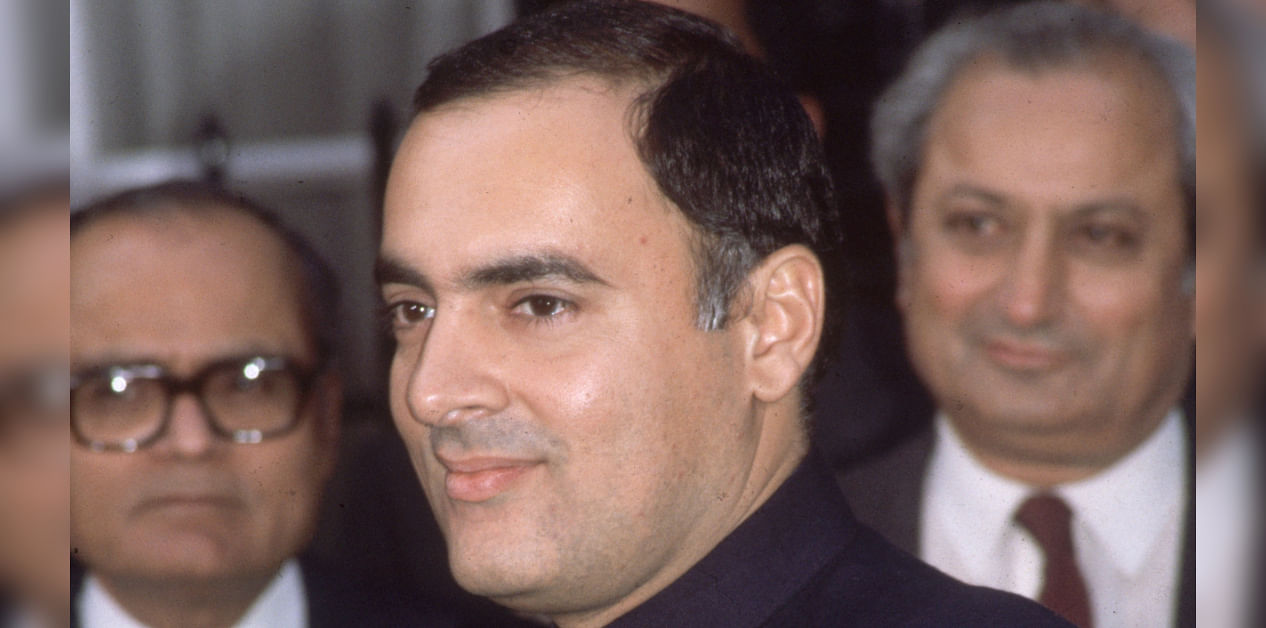
Arun Nehru and M L Fotedar appeared to have steered the decision on unlocking the gates of Babri Masjid-Ram Janmabhoomi in February 1986 keeping Rajiv Gandhi in the dark while M J Akbar convinced the then Prime Minister to take steps to reverse the Shah Bano judgement, according to a new book by former Chief Information Commissioner Wajahat Habibullah.
Habibullah, now a retired IAS officer who worked in Rajiv's PMO, writes that events that followed the Shah Bano judgement aroused suspicion amongst other communities and to appease the Hindus, the government decided to unlock the gates of Babri Masjid to the devotees of Lord Rama.
This was done through a local court in Faizabad vacating a stay order that had retained status quo, he writes in the recently released 'My Years with Rajiv'.
While in February 1986 the locks were opened, Habibullah got a chance to ask Rajiv directly about the decision and his role in it nine months later while they were flying to drought-hit Gujarat.
Habibullah quoted several sources to say that unlocking of the gates would not have changed the status quo as the building continued to be a mosque while functionally it had been a Hindu temple. While Hindus were having access to the area, Muslim did not have access to the building.
Against this backdrop, Habibullah asked Rajiv was it not realised that the benefit could “only be limited” to such a move, as with the Congress remaining secular, the development could not be exploited to its maximum, and the right-wing would hijack the outcome, which it could "trumpet as its triumph".
Also Read | Three-minute verdict for a 28-year-old dispute
It was then Rajiv told him that he "knew nothing of this development until I was told of it after the orders had been passed and executed". Rajiv told him that no government has any business to meddle in matters like determination of the functioning of places of worship.
When Habibullah said, "but, sir, you were prime minister", Rajiv responded, "Of course I was. Yet I had not been informed of this action, and have asked Vir Bahadur Singh (under whose watch, and under whose instructions, it was rumoured, the magistrate had taken this fateful - or shall I call it fatal - decision) to explain. I suspect it was Arun (Nehru) and Fotedar (Makhan Lal) who were responsible, but I am having this verified. If it is true, I will have to consider action." In the coming month, Nehru, who was Rajiv’s cousin, was dropped from the Cabinet.
On the government decision to bring a law to circumvent the Supreme Court judgement in the Shah Bano case, Habibullah writes that Akbar, a journalist who became a Congress MP and joined BJP to become a Minister in the Narendra Modi government, has played a role.
He writes that it seemed initially Rajiv had agreed that the government would not get into Shah Bano judgement and would nudge the petitioners to go for review, which the government would not contest.
Also Read | Timeline of the Babri Masjid demolition case
During one of the days, Habibullah writes that he saw Akbar, then a journalist, in Rajiv's office and when he entered the room, the Prime Minister greeted him, "come in, come in, Wajahat, you are one of us", which he found "curious but was to discover the reason" for it soon enough.
"Akbar had succeeded in convincing Rajiv that if the government were not to challenge the Shah Bano judgement, it would appear to the Muslim community that Rajiv was distancing himself from the defence of the religious rights of Muslims. He needed to demonstrably recognise the support that the community had always placed on his family," Habibullah writes.
"This argument was developed by Akbar in a Doordarshan debate with then Congress minister, Arif Mohammad Khan—an MP from Azamgarh, UP, who had been asked by Rajiv to convince Muslims of the merits of the Supreme Court judgement in which Arif had argued that the Qur’anic provision, or lack of it, for maintenance was neither a compulsion nor closed to interpretation. But Akbar, more westernised than Arif, had argued that the Muslims needed a reassurance that could only be provided by an amendment to the law; one that ensured reversal of the judgement," Habibullah writes.
